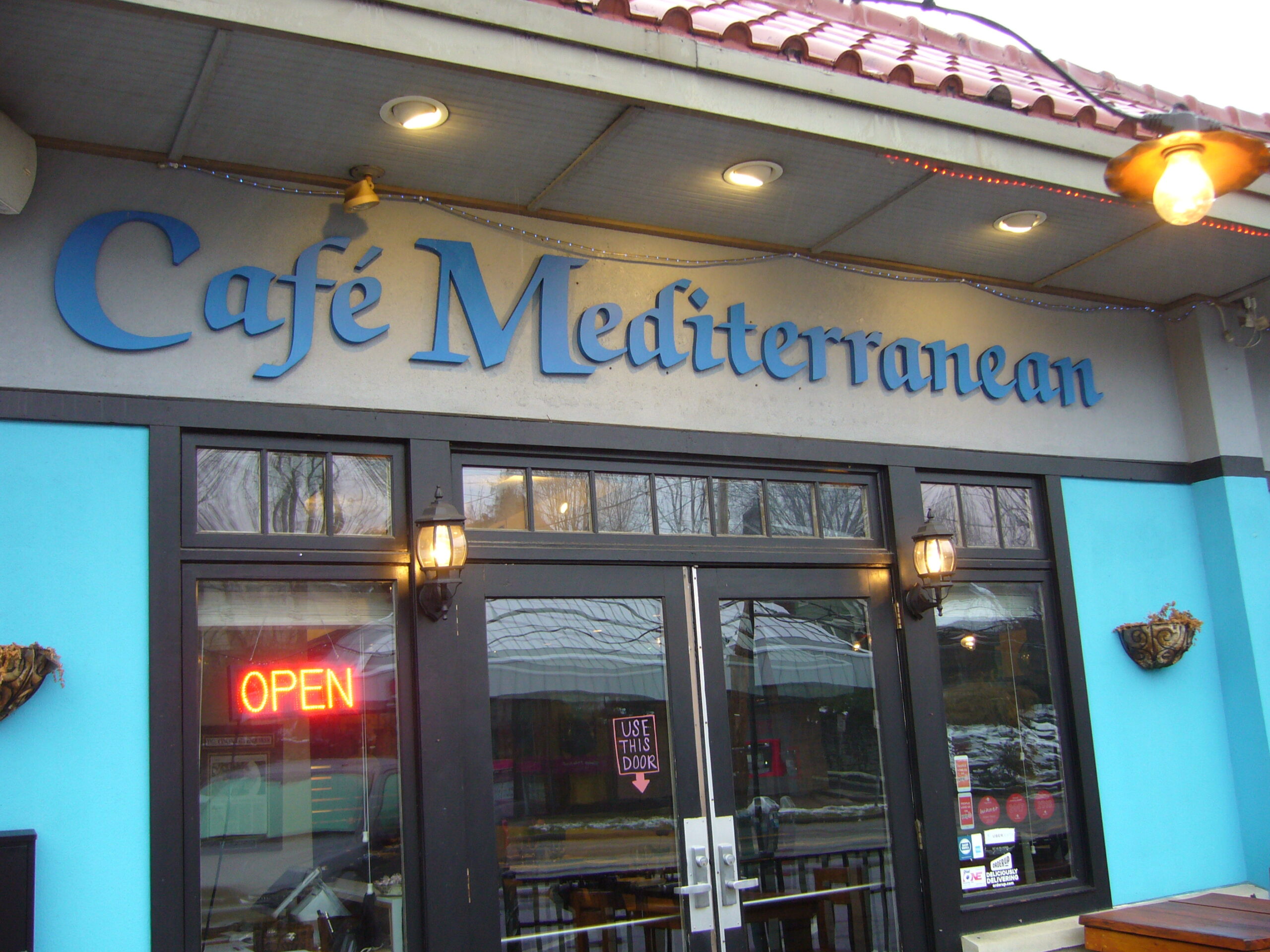
Fahri Ozdil of Café Mediterranean is no shrinking violet when it comes to touting Turkish cuisine. Here’s what he has said to Dining Out on numerous occasions, repeated at our most recent visit: “Turkish is the hardest cuisine in the world. It takes more time to do the dishes we serve — hours and hours and sometimes days to make the dish, the cabbage rolls, it’s two days to make them to get all the flavors (in place).”

Turkish-style cabbage rolls
Why all the time? “We do everything by hand, no machines. We use the knives to cut all the vegetables and by hand, it takes longer for doing it, but much better the taste you are getting when you do it the Turkish way. First, for the cabbage rolls, steam the leaves, to soften the leaves, then you have to let them cool. Same day, we ground up the lamb and the beef together. We chop the onion, the red and green bell pepper, the garlic. Season with salt and pepper, but then we add 20 herbs and spices that we use in Turkey to get the flavors. You are not doing that, you are missing the flavors. You have to cook the rice, and add the tomato and pepper paste to the meat and all the (chopped) vegetables. Mix it all together. Then next day we are filling the cabbage leaves and putting them in the baking tray. We cover with tomato sauce and lemon juice and olive oil, salt, pepper — all wonderful flavors when you are finishing for the oven.”
So, a 2-day process to that point, but the time commitment is not at an end even then. The next step is the cooking, which takes three hours in a low-temp oven. “Low and slow is how we are cooking them, which is the Turkish way. We are cooking them this way for the best flavor you cannot believe. The cabbage rolls they are so good!” Ozdil stated, saying that if one rushes the process the flavors of the this ethnically Slavic dish will not be as good. Ozdil claimed his Turkish-style cabbage rolls are a popular item, especially among people from Eastern Europe and the Middle East and his Jewish patrons love them as well.

A wedge of baklava made with pistachio nut filling and dusted with the same
So, an enthusiastic endorsement of cabbage rolls. But he expressed even greater enthusiasm for his pie-wedge servings of baklava, also done Turkish style. Here, the difference is pistachio nuts, according to Ozdil. “We are using them. The difference is pistachios; they are making a huge difference. The original Turkish baklava, it is using pistachio. They use other nuts too (in some recipes) but pistachio is the main one,” he said.
In fact, many makers of baklava do use less expensive nuts to chop and layer into this classic Greco-Mideast dessert. But for Ozdil, there is no substitute for the real thing, and the results he shared may be some indication why. “We are having people try it and we have sold trays (full of baklava) to take home to Michigan, to Louisville, to West Virginia.
A couple months ago, four ladies, they are coming here in the afternoon, finding us on Google. One lady, she is the sous chef, and they all eat the meal, and, oh, we are so full. No dessert. I tell them about the baklava and how we are making it, and they say, ok, one piece to share. And the first bite, they are ordering a whole tray of baklava to take home to West Virginia.
Speaking of the special party from West Virginia, one of the women ordered lamb shank. Lamb is among the most popular meats in Turkey, and especially in Istanbul. Unquestionably the top item in the lamb category at Café Mediterranean is the lamb shank, which, again, takes much time and patience to prepare. In its raw, uncooked state, lamb shank is as tough as shoe leather due to all the connective tissue. The trick is to braise the meat over low heat for hours on end, until the meat becomes fall-apart tender. So, how does one do that? Ozdil said this: “We start with the lamb shank, and we use the fresh celery, onion, the carrot, garlic — all fresh — bay leaf, and we boil like six hours; slow (over low heat). The meat, it is getting really tender, so tender you cannot believe it. Then after that with the liquid we make with fresh and dry herbs, and the tomato and pepper paste, we make a beautiful red sauce. Really, really tastes wonderful,” he said.
“People, they are coming here for this dish. We are seeing a lot of new faces, and mostly they hear from friends and family, or even they come in from out of town — California, New York, (West Virginia, too) all over, and they hear about us. And they order the lamb shank when they see it on the menu,” Ozdil said.
See you at Café Mediterranean!





